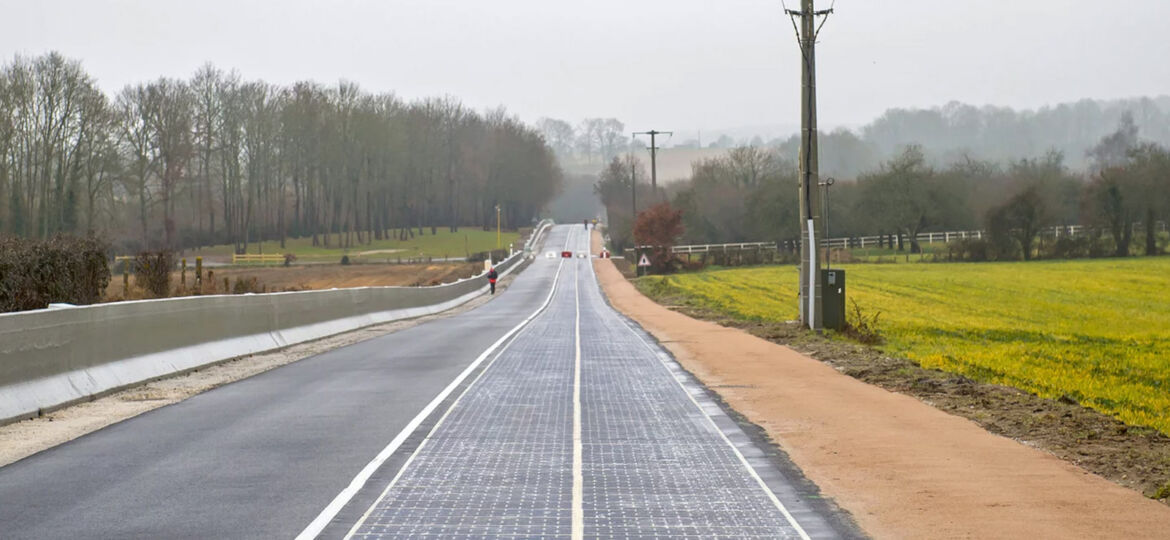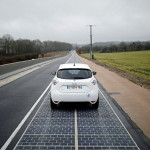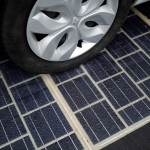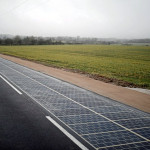
WHY THIS MATTERS IN BRIEF
While there are questions about the return on investment and viability of solar panel road schemes it’s important to experiment with the technology, especially as more electronic vehicles hit the roads.
France has opened what it claims to be the world’s first solar panel road, in a Normandy village. The 1 km (0.6 mile) route in the small village of Tourouvre-au-Perche covered with 2,800 sq m of electricity generating panels, was inaugurated yesterday by the Ecology Minister, Ségolène Royal.
The new road cost €5m (£4.2m) to construct and it’s estimated that it will be used by about 2,000 motorists a day during a two year test period to establish if it can generate enough energy to power street lighting in the village of 3,400 residents.
In 2014, a solar-powered cycle path opened in Krommenie in the Netherlands and, despite teething problems, so far it’s generated over 3,000kWh of energy which is enough to power an average family home for a year – small, but at least it’s a start. But when you realise that the cost of building the cycle path could have paid for 520,000kWh it raises some questions. That said though these types of installations are still new, and as with any technology they only improve overtime. Bearing in mind that by 2030 Europe is being driven to make the switch from combustion engine vehicles to electric ones schemes like these might play an integral role in powering Europe, and maybe even the US’s national super charger networks.
Before the solar powered road, called Wattway, was opened on the RD5 road, the panels were tested at four car parks across France. The constructor was British company Colas who are part of giant telecoms group Bouygues, and financed by the French government.
Normandy is not known for its surfeit of sunshine though, Caen, the region’s political capital, enjoys just 44 days of strong sunshine a year compared with 170 in Marseilles but despite that Royal has said she would like to install 10,000 km of solar panels on french roads but that said panels laid on flat surfaces have been found to be less efficient than those installed on sloping areas such as roofs so the future of the technology, to some degree, hangs on this two year test. And, futhermore, critics of the scheme say it is not a cost effective use of public money.
Marc Jedliczka, vice-president of Network for Energetic Transition (CLER) told Le Monde: “It’s without doubt a technical advance, but in order to develop renewables there are other priorities than a gadget of which we are more certain that it’s very expensive than the fact it works.”
Jean-Louis Bal, president of renewable energy union SER, said: “We have to look at the cost, the production [of electricity] and its lifespan. For now I don’t have the answers.”
Colas said the panels have been covered with a resin containing fine sheets of silicon, making them tough enough to withstand all traffic, including HGVs. The company says it hopes to reduce the costs of producing the solar panels and has about 100 other projects for solar-panelled roads – half in France and half abroad.
Solar panel roads aren’t just a French affair though. Solar Roadways out of Idaho are building a hexagonal tiled roadway that not only generates electricity but it also warms up roads making plowing obsolete – now that, combined with their electricity generating capacity might just be enough to tip the balance in their direction in Idaho but, as for the french experiment we’ll have to wait and see.





















